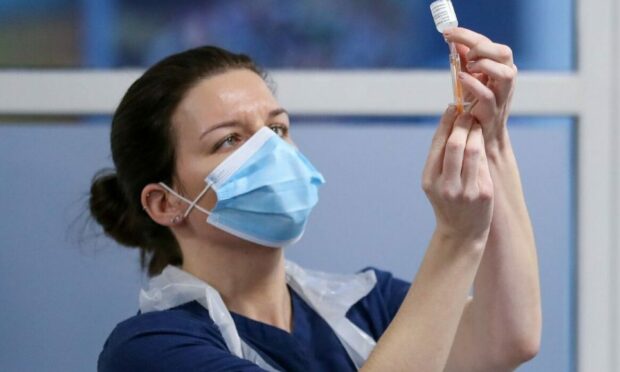A health boss has stressed Freedom Day could be coming around quicker than it should with Covid concerns still a high priority.
Jillian Evans, head of health intelligence at NHS Grampian, raised fears about restrictions easing across the UK, suggesting talk of a Freedom Day has come around “too soon”.
She stated a more cautious approach is needed to prevent people suffering serious health problems and long-term effects from Covid.
Boris Johnson has confirmed plans to suspend all coronavirus restrictions, including social distancing and the requirement to wear masks, in England from July 19 – dubbed Freedom Day – despite rising cases across the UK.
Scotland’s Freedom Day is set for August 9, with hopes remaining high that mainland Scotland will move to Level 0 on July 19.
‘We’ve still got a sizeable proportion of the population who are susceptible to infection’
Jillian said: “The way it is portrayed worries me more than anything because freedom means you can go about without any restrictions, and I think that is too soon while we’ve still got a sizeable proportion of the population who are susceptible to infection.
“My worry is if we lose sight of trying to keep infection rates down as is the approach in England now, but not in Scotland yet, then we make ourselves all vulnerable to other mutations of the virus, but also catching it, no matter what age you are, and the risk of you having long-term illness and disability with a virus that’s much more dangerous than flu.
“It’s not flu and we don’t know the long-term impact of Covid on people’s health, and the emerging research on people who have had serious symptoms from Covid means that you may well be left with long-term disability.
“For younger people in particular, who might be susceptible to extended symptoms – long Covid – we don’t know how that might play out in time either.
“So I worry about Freedom Day when there are so many health harms that still exist.
“I fully appreciate that there’s wider harms to our health and wellbeing, but I still think we should just be doing it bit by bit – trying to get normal in a more cautious way would be more protective of people’s health in the long run.”
Positive signs
Jillian added NHS Grampian is still dealing with “significantly high and rising infection rates” – but added there were positive signs with the rate of the increase appearing to be slowing down.
The latest statistics show 1,611 new cases were recorded in Grampian over seven days from June 25th until July 1, compared to 1,112 the previous week.
A total of 808 new cases were diagnosed in the Highlands over the same period, compared to 583 cases during the third week of June.
Jillian said: “There’s still significant increases but the rate of the increase seems to have slowed down.
“With the results I’ve seen over the past few days I’m looking at them with an optimistic hopeful eye at the moment.”
Vaccinations are the ‘way out’
Jillian said she’s also hopeful new drop-in vaccination centres will help increase the number of vaccinations across the region.
It’s hoped the working population will find the option of walk-in clinics more convenient than attending appointments.
But she warned that residents who had received both vaccinations should not be complacent and urged them to continue protecting themselves.
She said research shows that one-in-five people with Covid had received both doses.
“You’re much less at risk of catching Covid or being dreadfully ill from Covid, or of being admitted to hospital with Covid, but you’re not Scot-free,” explained Jillian.
“That’s why we need to maintain public health measures even with people doubly vaccinated, at least until we’ve got greater population immunity and my hope would be that would be through inoculation rather than catching Covid.
“So far I think we’ve had a tremendous response. It feels like the normal thing to do for the majority of people so I’m optimistic about vaccination uptake.
“I think it will continue to improve and that is basically our way out of this.”

